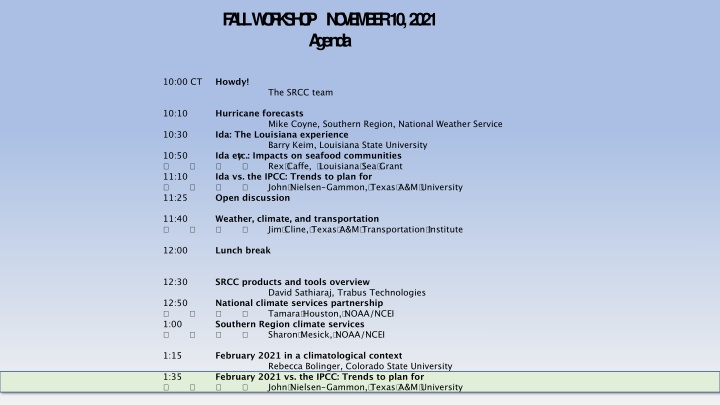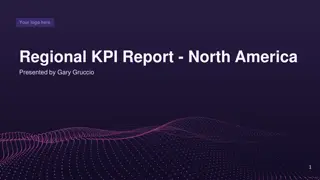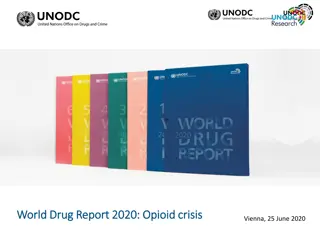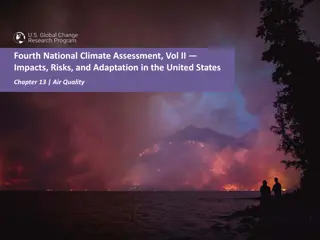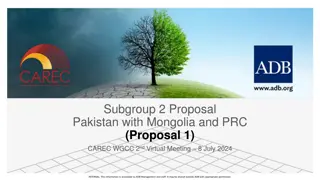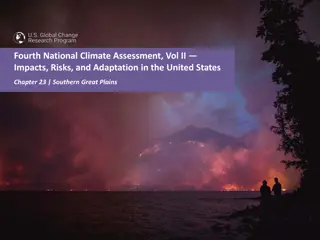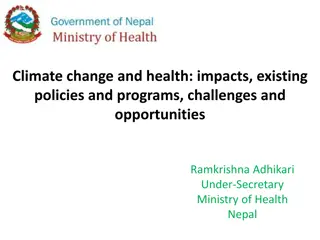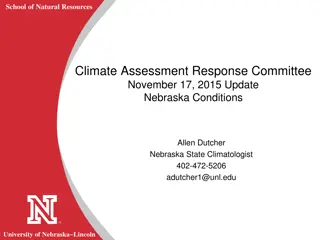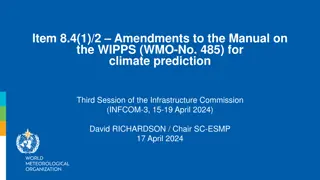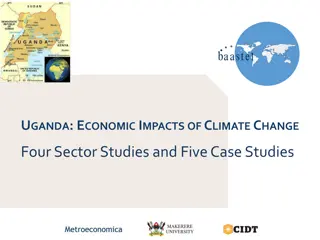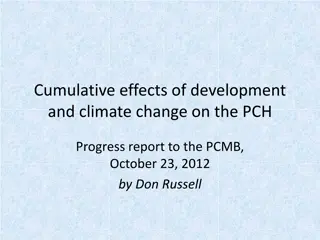Climate Trends and Impacts in North America
The workshop held at SRCC discussed various climate-related topics, including hurricane forecasts, impacts on seafood communities, and trends in weather, climate, and transportation. Presentations highlighted the importance of planning for climate changes as outlined by the IPCC reports. The content also emphasized the likelihood of decreased cold extremes in North America due to global warming.
Download Presentation

Please find below an Image/Link to download the presentation.
The content on the website is provided AS IS for your information and personal use only. It may not be sold, licensed, or shared on other websites without obtaining consent from the author.If you encounter any issues during the download, it is possible that the publisher has removed the file from their server.
You are allowed to download the files provided on this website for personal or commercial use, subject to the condition that they are used lawfully. All files are the property of their respective owners.
The content on the website is provided AS IS for your information and personal use only. It may not be sold, licensed, or shared on other websites without obtaining consent from the author.
E N D
Presentation Transcript
https://sr https://srcc cc.tam .tamu.edu u.edu F A L L W O R K S H O P N O V E M B E R 10, 2021 A g en d a 10:00 CT Howdy! The SRCC team 10:10 10:30 10:50 ? 11:10 ? 11:25 Hurricane forecasts Ida: The Louisiana experience Barry Keim, Louisiana State University Ida etc.: Impacts on seafood communities ? ? Rex? Caffe , ? Louisiana? Sea? Grant Ida vs. the IPCC: Trends to plan for ? ? John? Nielsen-Gammon,? Texas? A&M? University Open discussion Mike Coyne, Southern Region, National Weather Service y ? ? 11:40 ? Weather, climate, and transportation ? ? Jim? Cline,? Texas? A&M? Transportation? Institute ? 12:00 Lunch break 12:30 12:50 ? 1:00 ? SRCC products and tools overview David Sathiaraj, Trabus Technologies National climate services partnership ? ? Tamara? Houston,? NOAA/NCEI Southern Region climate services ? ? Sharon? Mesick,? NOAA/NCEI ? ? 1:15 1:35 ? February 2021 in a climatological context Rebecca Bolinger, Colorado State University February 2021 vs. the IPCC: Trends to plan for ? ? John? Nielsen-Gammon,? Texas? A&M? University ? T is workshop will be conducted via Webex. Please register: https://tti-tamu.webex.com/tti-tamu/j.php?RGID=r99fc341f 7cbaacf37c91e42d197f8be Questions? Contact Jim Cline, j-cline@tti.tamu.edu or Alison Tarter, tartera@exchange.tamu.edu
February vs. the IPCC John Nielsen-Gammon Director, Southern Regional Climate Center
IPCC AR6 WG1 Near-final draft released in August 2021 Addresses how the climate has changed and may/will change Doesn t consider impacts (WG2) or mitigation (WG3) Product of many scientists Not perfect, but better than a random scientist Puts existing studies into perspective
February Extreme cold Long-lasting Snow and ice
From the IPCC In North America, there is very robust evidence for a very likely decrease in the intensity and frequency of cold extremes for the whole continent, though there are substantial spatial and seasonal variations in the trends. Minimum temperatures display warming consistently across the continent. Cold spells have undergone a reduction in magnitude and intensity in all regions of North America. It is likely the intensity and frequency of cold extremes will decrease compared with the 1995-2014 baseline, even under 1.5 C global warming and those changes will [be] virtually certain to occur under 4 C global warming.
From the IPCC Global warming dominates changes in temperature extremes at the regional scale and it is very unlikely that dynamic responses to greenhouse-gas induced warming would alter the direction of these changes. Translation: Arctic cold air is becoming much, much warmer. The number of favorable patterns for cold air may increase, but not enough to overcome the warming air.
From the IPCC High-latitude precipitation increase may lead to an increase in snowfall in the coldest regions and a decrease of snowfall in warmer regions due to a decreased number of freezing days. Heavy snowfall events globally are not expected to decrease significantly with warming as they occur close to the water freezing point, which will migrate poleward and in altitude. A study for the northeastern US indicates smaller reductions for major snowfall events against the broader decline in snowfall expected from thermodynamic effects.
Open discussion How can the SRCC serve you?
